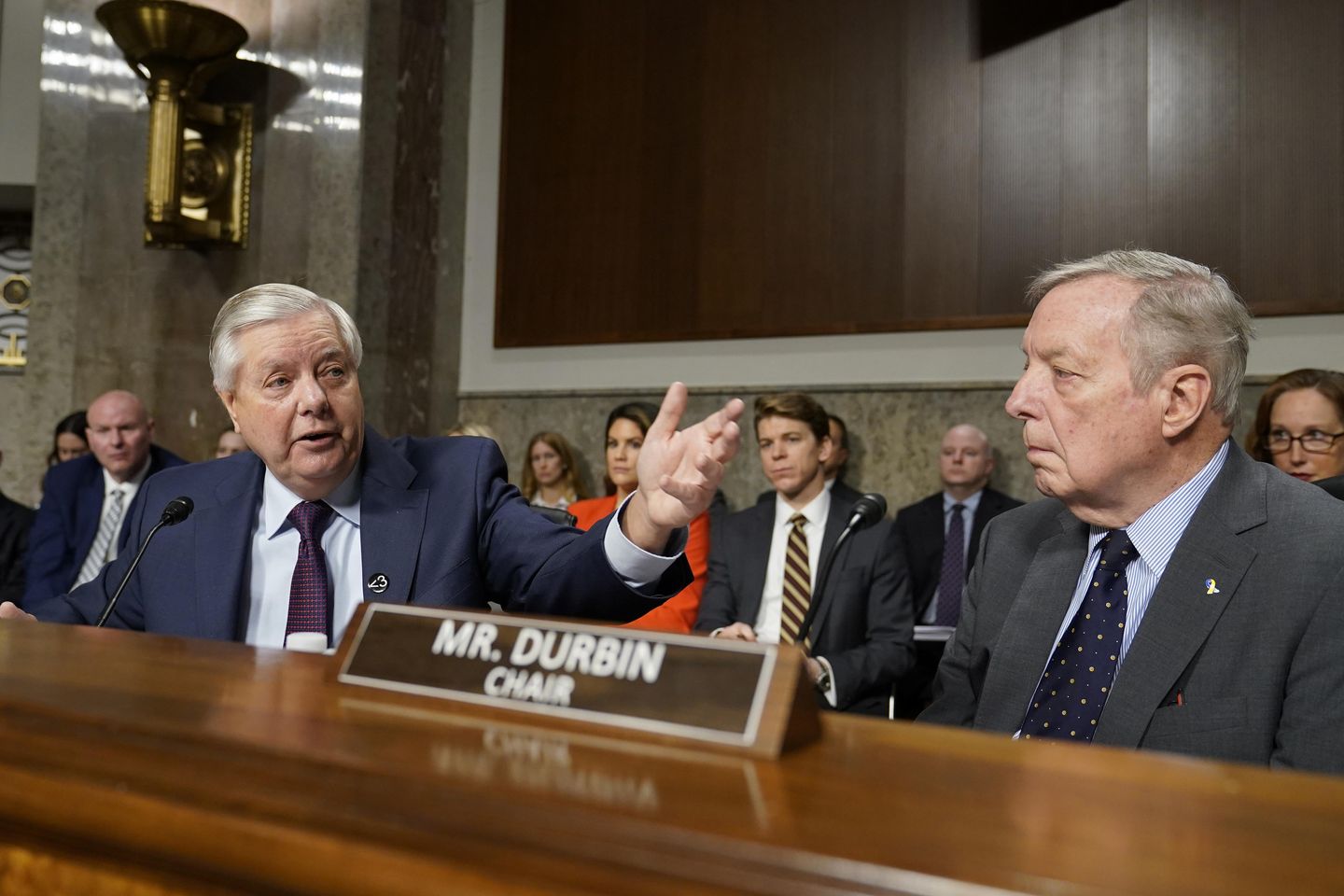The recent ruling by the Supreme Court granting presidents some immunity from criminal prosecution has sparked intense debate among senators on the Judiciary Committee. Legal experts weighed in on the implications of the decision, with many suggesting that the only way to circumvent the precedent would be through the adoption of a constitutional amendment.
The ruling, which was handed down by the Supreme Court in a narrow 5-4 decision, held that a sitting president cannot be criminally prosecuted or even investigated while in office. The decision was met with mixed reactions, with some praising it as a necessary protection of the presidency, while others criticized it as granting the president unprecedented immunity from legal scrutiny.
During the committee hearing, senators from both sides of the aisle grilled legal experts on the implications of the ruling and possible ways to address the concerns raised by the decision. One of the key issues that emerged during the debate was the question of whether a sitting president should be above the law and immune from criminal prosecution.
Several legal experts argued that the Supreme Court’s ruling was a dangerous expansion of presidential power and undermined the principle that no one, not even the president, is above the law. They pointed to the history of presidential abuses of power and argued that without the threat of criminal prosecution, presidents could act with impunity and undermine the rule of law.
One possible solution that was proposed during the hearing was the adoption of a constitutional amendment that would clarify the extent of a president’s immunity from criminal prosecution. Such an amendment could provide a framework for how and when a sitting president could be investigated or prosecuted, while still preserving the separation of powers and the independence of the executive branch.
However, the prospect of passing a constitutional amendment is fraught with challenges. Amending the Constitution requires a two-thirds majority in both the House of Representatives and the Senate, as well as ratification by three-fourths of the states. Given the current political climate and the deep partisan divisions in Congress, the chances of passing such an amendment are slim.
Despite the challenges, some senators expressed support for the idea of a constitutional amendment as a way to address the concerns raised by the Supreme Court’s ruling. They argued that it was essential to ensure that no one, not even the president, is above the law and that the rule of law is upheld.
Others, however, were skeptical of the feasibility of passing a constitutional amendment and raised concerns about the potential unintended consequences of such a move. They warned that amending the Constitution could open a Pandora’s box of other changes and could lead to further erosion of constitutional protections.
In the end, the debate over the Supreme Court’s ruling and the possibility of a constitutional amendment highlighted the complex and contentious nature of the issue. The question of presidential immunity from criminal prosecution is a thorny legal and political issue that goes to the heart of the balance of power between the branches of government and the rule of law.
As the debate continues, it is clear that there are no easy answers or quick fixes to the challenges posed by the Supreme Court’s ruling. It will require careful consideration, thoughtful deliberation, and a willingness to engage in a robust and open debate to find a path forward that upholds the principles of justice, accountability, and the rule of law.









